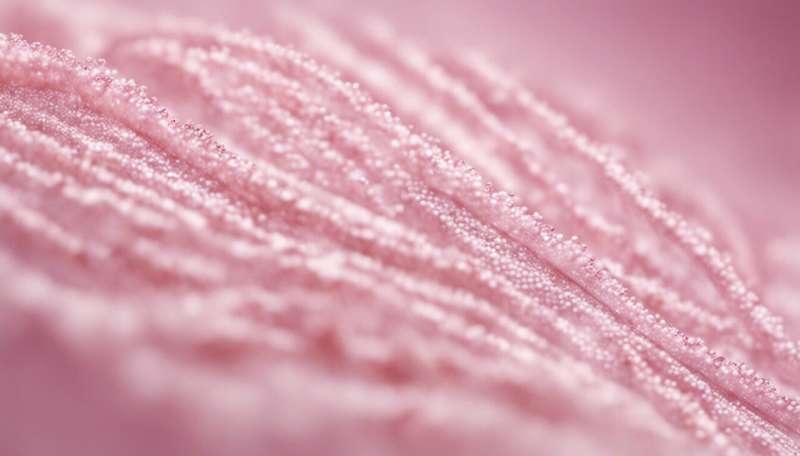Credit: AI-generated image (disclaimer)
Mothers of extremely premature babies have higher concentrations of immune proteins in their breast milk, despite the fact that their babies are prone to deadly bacterial blood infections, researchers have discovered.
The findings have surprised University of Western Australia scientists given that predominantly preterm babies rather than full-term infants suffer with these blood infections.
The research suggests that the antibacterial proteins in breast milk could be present because the mothers themselves are fighting off infection, which inadvertently leaves their babies vulnerable to premature birth and illness, UWA biologist Dr Stephanie Trend says.
Between 30 and 40 per cent of extremely premature babies—those born before 28 weeks' gestation—suffer from late-onset sepsis (LOS), a potentially deadly condition that strikes week-old babies.
LOS is one of the most common causes of death in newborn babies, causing breathing and suckling difficulties, vomiting, diarrhoea, jaundice and seizures.
"The hypothesis was that preterm mother's milk would be deficient in antibacterial protective factors and this might explain some of the high-incidence of late-onset sepsis in the extremely preterm group," Dr Trend says.
"But actually what we found when we looked at breast milk samples, and adjusted for factors that might affect composition of the milk, was that some of the preterm mothers had higher concentrations of antibacterial factors compared to [full] term mothers."
Fighting to survive
Early birth is often induced by inflammation and the women's mammary glands may be responding to systemic immune signals, Dr Trend says.
The Characterisation of Milk After Preterm Birth (COMET) study measured and compared the levels of antimicrobial proteins and peptides.
The research also included proteins that affect gut microbes, prevent bacterial attachment, and regulate immune response in the breast milk of 60 women who gave birth at King Edward Memorial Hospital in Perth in 2013.
The researchers collected milk from the mothers three, 10 and 28 days after birth and classified the women according to their gestation length.
Dr Trend says irrespective of the pregnancy's length, she found more than 60 per cent of the colostrum's total protein content—or the milk produced in the days after birth—was antibacterial.
"Often people think of breast milk as a nutritional fluid, but looking at the immune content in colostrum, more than half of all of the protein of the milk is for an immunological and bacteria defense purpose and later on, it's about a third of that content," Dr Trend says.
More information: Stephanie Trend et al. Levels of innate immune factors in preterm and term mothers' breast milk during the 1st month postpartum, British Journal of Nutrition (2016). DOI: 10.1017/S0007114516000234
Journal information: British Journal of Nutrition
Provided by Science Network WA





















